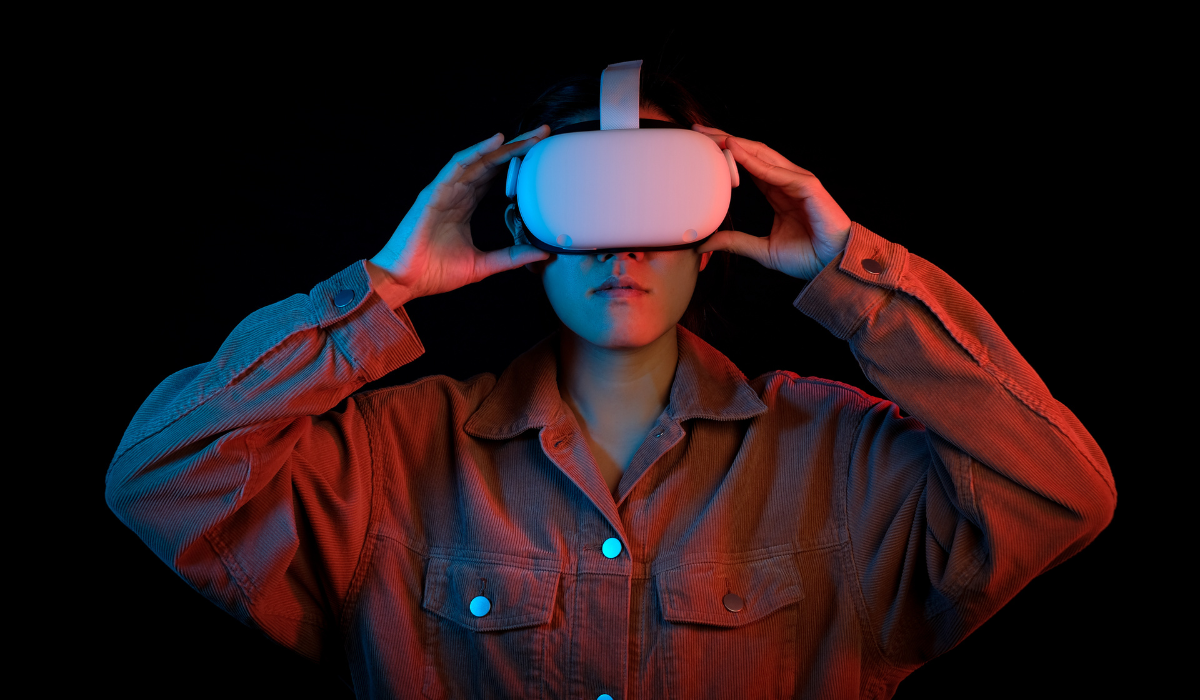
Meta’s ambitious strategy to promote the metaverse through retail outlets has not gone as planned. The company’s first physical Meta Store opened in California a year ago to showcase the Quest headset, but it has not been followed by others. Martin Gilliard, the leader of the store initiative, has left the company, and another planned store was abandoned due to economic slowdowns and changes in Apple’s privacy norms.
Recently, a focus on cost-cutting has prevailed at Meta, with over 20,000 employees let go in recent months and certain projects winding down for efficiency reasons. Despite this, the original Meta Store continues to operate.
A few years ago, the metaverse was a marketing buzzword, with brands flocking to virtual platforms like Fortnite and Roblox. But the initial excitement has faded with the rise of AI and other tech trends, causing the metaverse to lose some of its allure. However, some industry leaders, like Jen Jones, CMO of Commercetools, still see potential in the metaverse. Jones believes the narrative around virtual experiences is evolving and advises brands not to lose faith in the metaverse’s potential to reshape marketing and retail.
Now, Meta has begun evolving its strategies and shifting its focus to improving the workforce using the metaverse. In the past year, the landscape of the retail labor market has experienced unprecedented transformations due to AI, machine learning, augmented reality, facial recognition, robotics, and beyond. Prior workforce development practices and procedures were swiftly replaced as progressively digital-centric workplaces evolved in response to demands for increased flexibility from the workforce.
The arrival of these technological advancements has unlocked infinite potential for retailers and is a key focus of the NRF Innovation Lab 2024, which explores how business operations can be streamlined for retailers. The metaverse, in particular, is now expected to revolutionize several facets of retail, including workforce development. New research indicates that virtual reality might hold the key to enhancing learning outcomes.
With an established presence in the metaverse, Meta is leveraging insights gathered on the efficacy of VR for learning to grapple with a crucial retail challenge: ensuring employee engagement, training, and retention.
“The metaverse promises to make learning more active. With virtual and augmented reality technologies, people can learn by doing, not just passively absorbing information. This has the potential to transform the way we provide new skills and new lifelong learning tools for people in the future.”
Nick Clegg, Meta’s president, global affairs, via NRF
In a press release last summer, Meta explained five key benefits of the metaverse for employees:
- Reducing risk in dangerous work: Through VR training platforms like Interplay, electrical apprentices can practice on virtual live wires safely. Such technologies make training programs cost-effective, flexible, and safe.
- Increasing caregiver empathy and retention: Platforms like Embodied Labs use VR to simulate cognitive, auditory, or vision loss, enhancing caregiver empathy and knowledge about daily challenges, thus aiding retention.
- Adding longevity to careers: Workers in physically demanding trades can prolong their careers by transitioning to less physically demanding roles through VR training platforms such as Interplay.
- Opening new pathways for jobs: According to Jobs for the Future, careers in extended reality (XR) are more accessible for non-degree holders, potentially allowing a broader population to enter and advance in the technology sector.
- Providing alternatives to physical prototypes: Using AR and VR, businesses can create and manipulate digital twins of large-scale projects in real time, reducing the need for costly physical prototypes.
These notions have already been tested in the real world. For example, Walmart provides a case study on the applications of VR technology in retail. As an early adopter, the retail giant is harnessing the potential of immersive simulations to bolster workforce development and training. Employees partake in virtual recreations of real-world store situations, enhancing the engagement and efficacy of the learning process.
The implementation of VR-based training has unveiled insights into employee abilities and led to improved employee test scores. According to Andy Trainor, Walmart’s former VP of learning, the adoption of VR training modules led to an uptick in test scores between 5% and 10% and reduced the time taken to train employees — an achievement with the potential to make significant positive ripples across the retail industry. VR-based training has been shown to be four times quicker than traditional classroom learning, and it has been linked to a 275% uptick in job confidence after training.
While the impact of VR technology extends to in-store retail training, its potential applications in customer service retail jobs training have the potential to revolutionize workforce development.



















